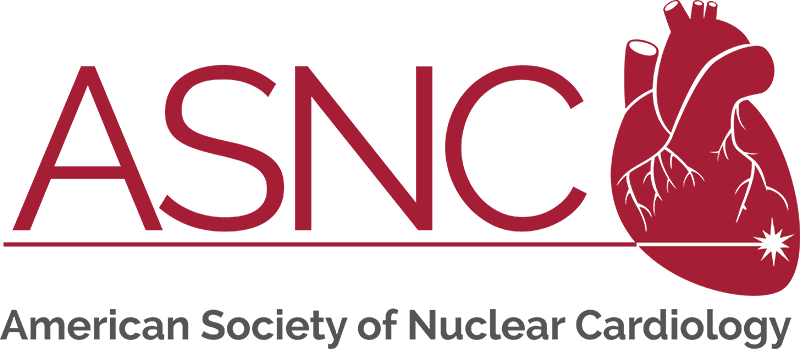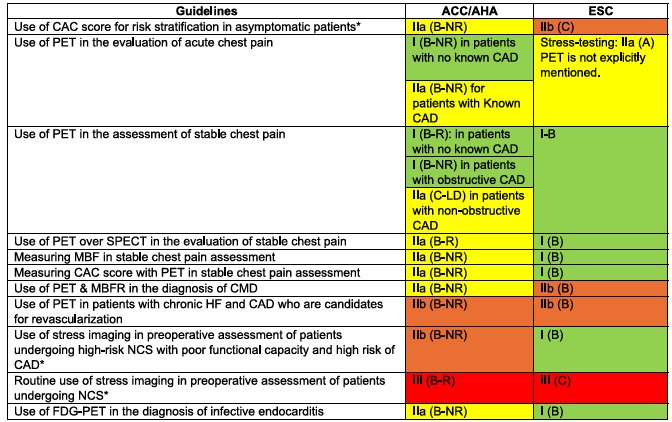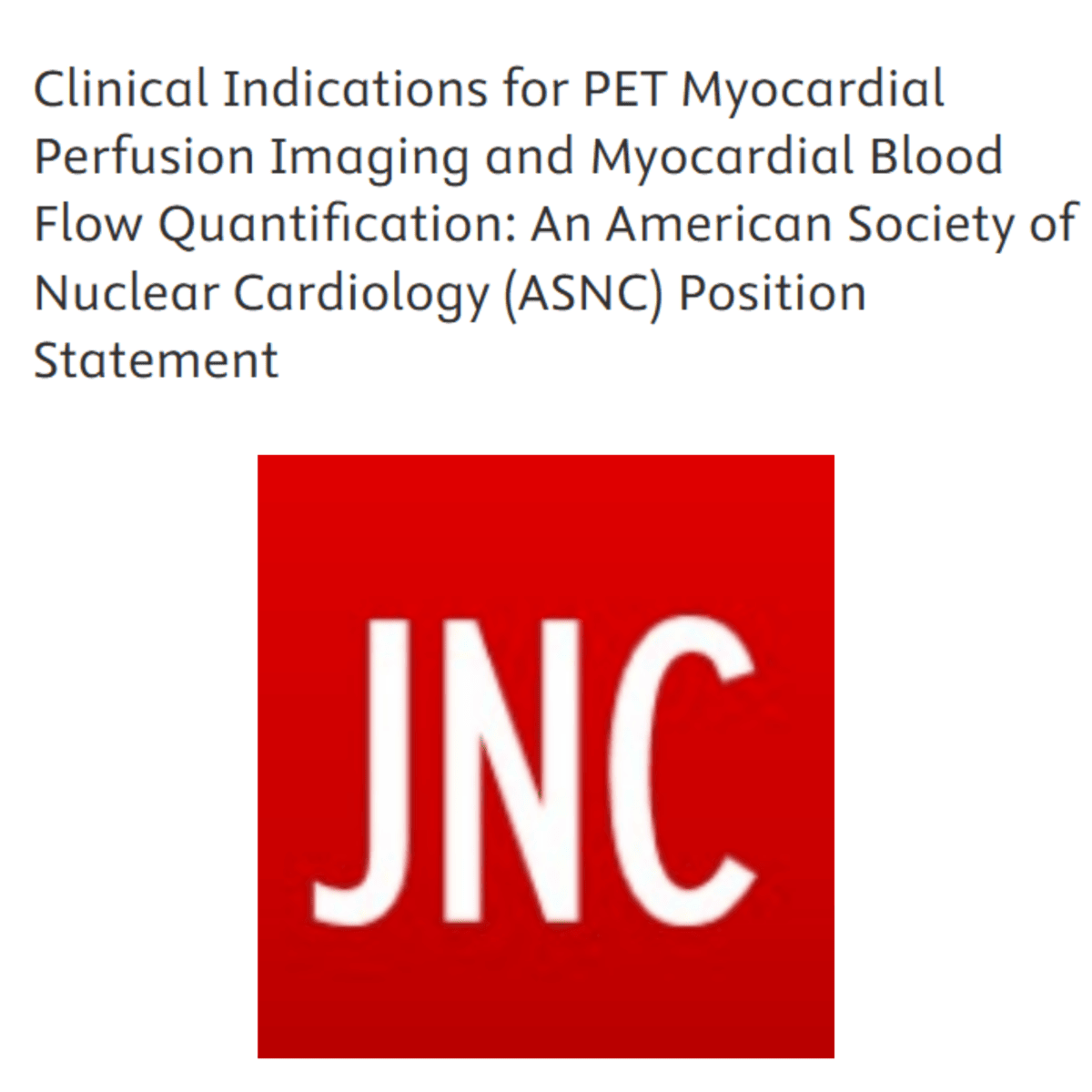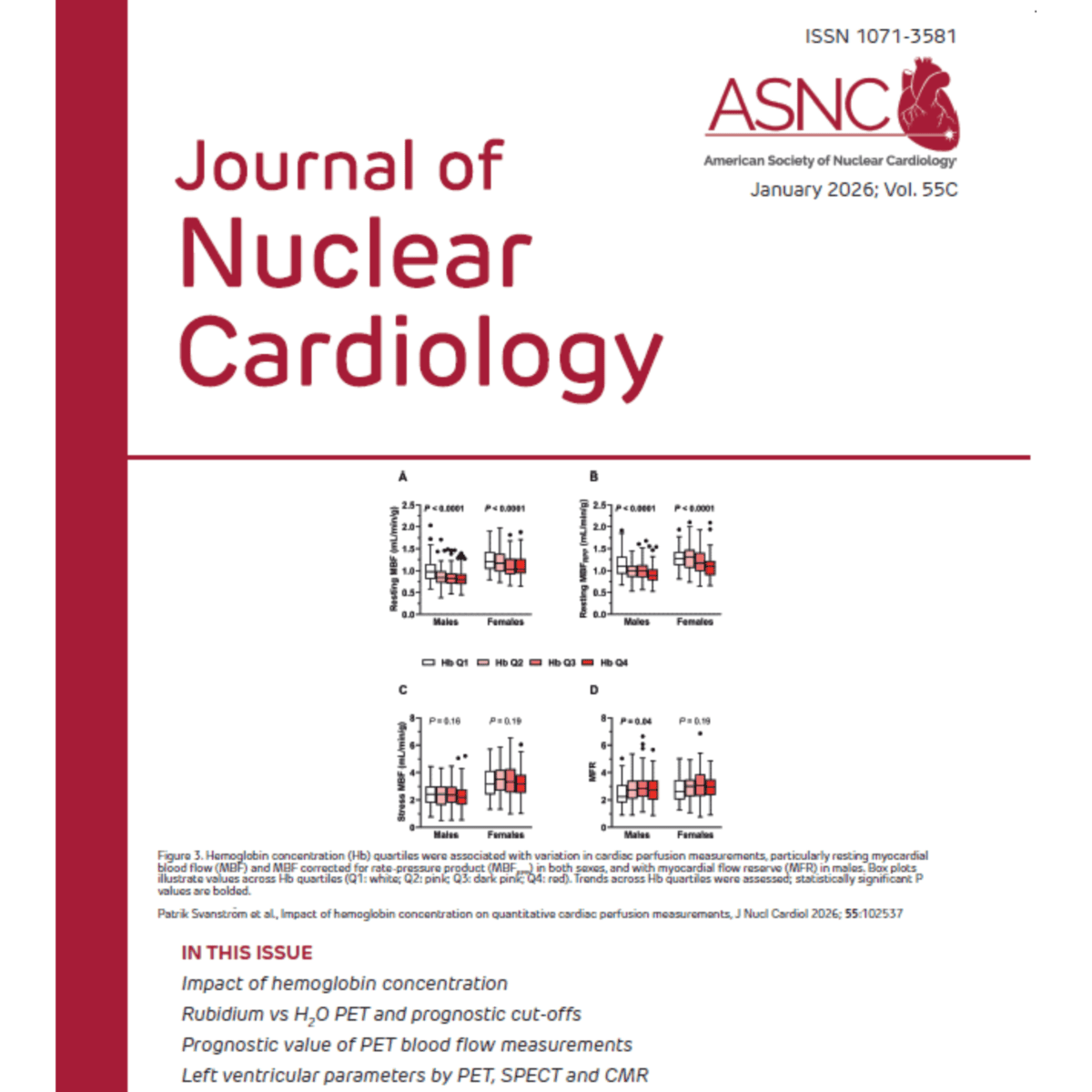Cardiac PET and PET/CT have earned new indications in recently published guidelines from the ACC/AHA, ESC, and the International Society for Heart and Lung Transplantation. “Several documents [are] now specifically recommending PET over other modalities when available — particularly in scenarios requiring quantitative myocardial blood flow assessment or improved diagnostic accuracy in challenging patient populations,” says Journal of Nuclear Cardiology (JNC) Editor-in-Chief Marcelo F. Di Carli, MD, MASNC.
To help you translate these recommendations into practice, JNC published a state-of-the-art review article documenting growing support for PET and PET/CT in the evaluation of ischemic heart disease, cardiac sarcoidosis, cardiac amyloidosis, endocarditis, vasculitis, and heart failure.
The article by Maria Alwan, MD, and colleagues, includes tables that provide at-a-glance summaries of ACC/AHA and ESC guideline recommendations for use of PET in evaluating stable chest pain; coronary microvascular disease/INOCA; heart failure; and non-coronary applications, including infective endocarditis and vasculitis.
Another table highlights the differences between the ACC/AHA and ESC guidelines. Currently, the authors say, the ESC provides more Class I recommendations than the ACC/AHA; however, “both sets of guidelines acknowledge the growing role of PET for perfusion, myocardial viability, and inflammation imaging.”
This article is a must-read for all cardiologists and cardiac imagers.
Article Type
JNC News, News & Announcements
Category
Journal of Nuclear Cardiology (JNC), Research
Related Posts
ASNC, EANM Announce Competitors for ICNC2026 Young Investigator Awards
At ICNC2026, the International Conference on Nuclear Cardiology, the following early-career investigators…
Cardiac PET, If Available, Is Now the Preferred Test for Evaluating CAD in All Patients
“Based on the clinical and scientific evidence now available, there are no…
Myocardial Blood Flow: The Signal That Will Help You Better Understand Ischemic Heart Disease
“The challenge ahead is not whether we can measure flow, but whether…




